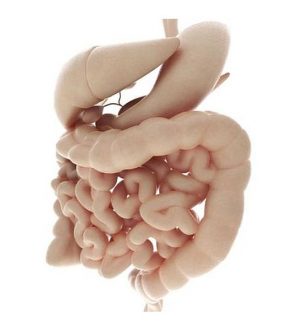- Could Your Grocery Store Meat Be Causing Recurring UTIs?
- Are You Making This Expensive Thermostat Error This Winter?
- Recognizing the Signs of Hypothyroidism
- 10 Strategies to Overcome Insomnia
- Could Artificial Sweeteners Be Aging the Brain Faster?
- Techniques for Soothing Your Nervous System
- Does the Water in Your House Smell Funny? Here’s Why
- Can a Daily Dose of Apple Cider Vinegar Actually Aid Weight Loss?
- 6 Health Beverages That Can Actually Spike Your Blood Sugar
- Treatment Options for Social Anxiety Disorder
Study Confirms Lifesaving Value of Colonoscopy

A large study has confirmed what many public health experts have long believed: Colonoscopy saves lives.
The study looked at roughly 25,000 patients in the Veterans Affairs (VA) health system, where colonoscopy is widely used. The VA views it as the main screening test for patients aged 50 and older who have average odds for developing colon or rectal cancer.
Of that group, close to 20,000 patients were cancer-free between 2002 and 2008. About 5,000 were diagnosed with colorectal cancer during that time and died of the disease by 2010.
Those who died were significantly less likely to have had a colonoscopy, the study found.
A comparison of screening histories over about two decades found that “colonoscopy was associated with a 61 percent reduction in colorectal cancer mortality,” said study author Dr. Charles Kahi.
Kahi is gastroenterology section chief with the Roudebush VA Medical Center in Indianapolis.
The U.S. Centers for Disease Control and Prevention recommends everyone between the ages of 50 and 75 get screened for colon cancer. Those at high risk — including those with a family history of the disease — should be tested even earlier, the CDC advises.
Screening can take several forms, including stool tests; a lower colon exam called flexible sigmoidoscopy; and even a “virtual” colonoscopy that relies on X-rays to scan the entire colon.
But many public health advocates favor a full colon exam, or colonoscopy. For the test, a patient is typically sedated and a doctor inserts a flexible, lighted tube to examine the entire colon. If found, growths called polyps can be removed during the procedure.
Between 11.5 million and 14 million Americans have a colonoscopy each year, according to the study team.
The new study focused on patients aged 50 and older who were treated at VA facilities between 1997 and 2010.
The investigators found that a colonoscopy reduced the risk of death from right-sided colorectal cancer by 46 percent and left-sided cancer by 72 percent, equaling a combined drop of 61 percent.
“These findings are important at several levels,” Kahi said.
For one, the study shows that the quality of care within the VA system — the nation’s largest — “is at least as good as other health care settings,” despite recent concerns, he suggested.
But more broadly, Kahi noted, the finding removes any doubt as to whether a colonoscopy can effectively reduce cancer deaths.
The answer, he said, “is an unequivocal ‘yes.'”
Both points were seconded by Dr. Andrew Chan, an associate professor of medicine at Harvard Medical School who reviewed the findings.
“I am not surprised,” Chan said. “The results confirm an already substantial body of data supporting that colonoscopy is associated with a substantial reduction in risk of colorectal cancer.”
The results provide reassurance that colonoscopy is an effective screening tool for patients in the massive VA health care system, he explained.
Chan added that doctors need to make colorectal cancer screening a routine part of their patients’ preventive care.
“And it is clear that we need to improve the performance of colonoscopy in the prevention of cancers that arise in the right side of the colon,” he concluded.
“This will likely require a focus on ensuring that patients undergo an optimal bowel preparation for the procedure and the physician performing the procedure does a high-quality exam with a focus on careful inspection of the entire colon,” Chan said.
Kahi and his colleagues published their findings online March 13 in the Annals of Internal Medicine.
More information
There’s more on colon cancer screening recommendations at the U.S. Centers for Disease Control and Prevention.
Source: HealthDay
Copyright © 2026 HealthDay. All rights reserved.










